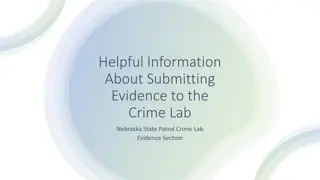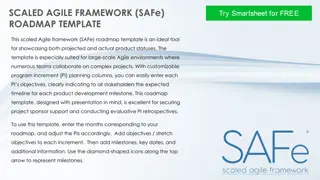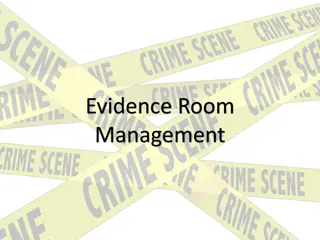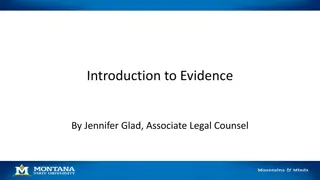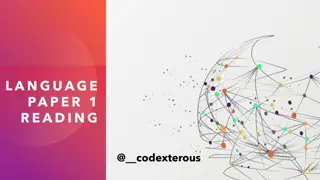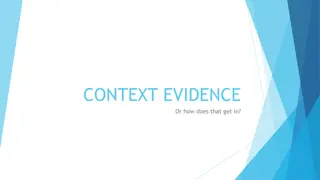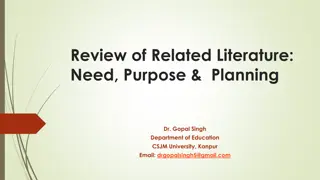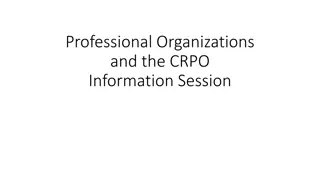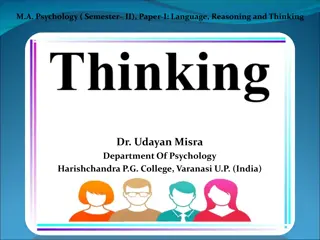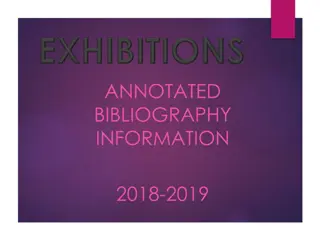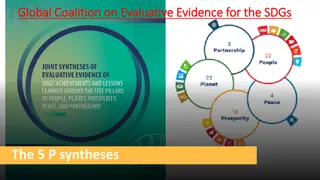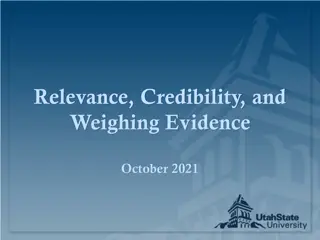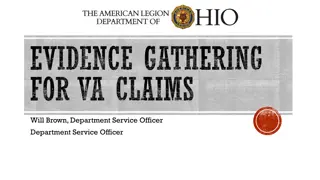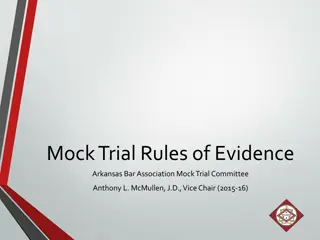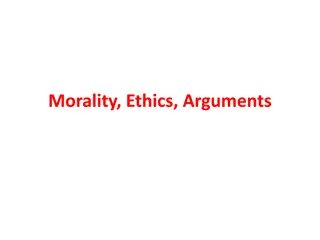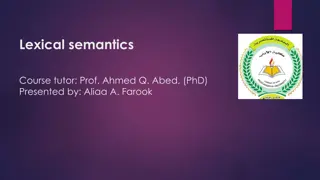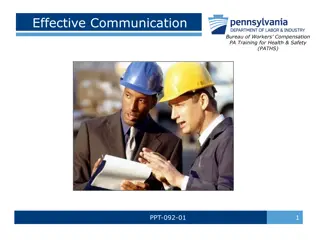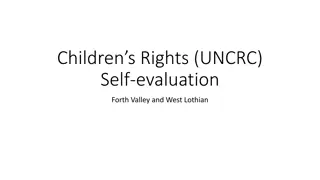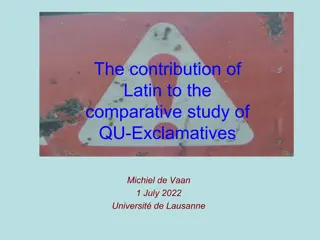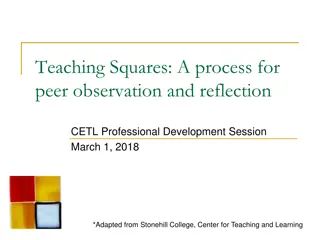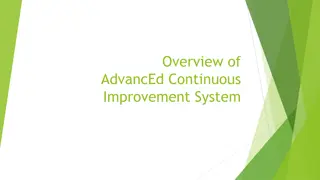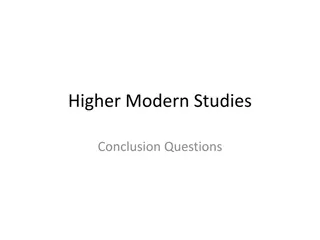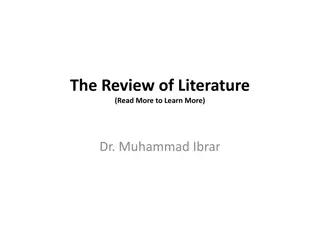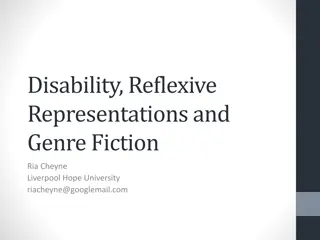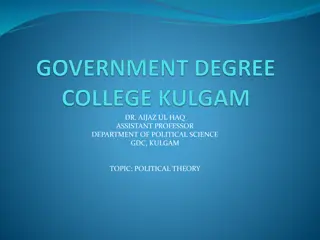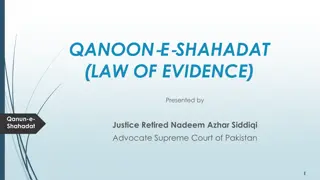The Role of Artifacts and Evidence in Educator Evaluation and Support
Exploring the role of artifacts and evidence in educator evaluation, this content covers the three categories of evidence required by the Oregon Framework. It delves into the efficient process that reduces redundancy, essential components of SLG goals, and the types of evidence relevant to professio
0 views • 15 slides
Understanding Impression Evidence Collection in CSI Investigations
Impression evidence plays a crucial role in investigations, including shoeprints, tool marks, tire tracks, bite marks, and riffling marks on bullets. This evidence can be collected in 2D using photography or tape lifts, and in 3D through casting methods. Differentiating between class and individual
0 views • 21 slides
Helpful Information About Submitting Evidence to the Crime Lab.
Helpful information about submitting evidence to the Nebraska State Patrol Crime Lab's Evidence Section. Learn about the NSP 750 Evidence Submittal Form, submission process, and guidelines for resubmissions. Ensure all necessary details are provided for proper analysis of evidence.
5 views • 16 slides
Illegally obtained evidence
Illegally obtained evidence refers to evidence acquired through unlawful means, such as searches without warrants or extraction under duress. The Fruit of the Poisonous Tree doctrine renders evidence inadmissible if derived from illegally obtained evidence. The Exclusionary Rule prohibits the use of
2 views • 30 slides
SAFe Roadmap Template for Large-Scale Agile Environments
This SAFe roadmap template is designed for showcasing projected and actual product statuses in large-scale Agile environments. It features customizable Program Increment planning columns to indicate objectives, timelines, milestones, and additional details. Ideal for securing project sponsor support
2 views • 4 slides
Evidence Room Management
Explore the intricacies of evidence room management in a law enforcement setting, including the roles of individuals like Greg Van Buskirk, differences in crime scene management between large and small departments, the distinction between property and evidence, the importance of maintaining chain of
0 views • 8 slides
Overview of 38 CFR Part 4 Rating Schedule
This class provides a general overview of 38 CFR Part 4, covering essential aspects such as evaluative rating, resolution of reasonable doubt, evaluation of evidence, and principles for assigning disability ratings. It emphasizes the importance of accurate medical exams and understanding rating perc
0 views • 84 slides
Understanding Evidence in Investigations
Learn about the principles and types of evidence in investigations, including inculpatory and exculpatory evidence, physical, documentary, demonstrative, and verbal evidence. Explore sources of evidence and the significance of collecting relevant information to ensure a fair investigative process.
0 views • 14 slides
Examining Language and Structure in GCSE English Language Preparation
Exploring the effective preparation strategies for GCSE English Language through language and structural analysis. Techniques for shaping meaning using evaluative words, image interpretation, and identifying key structural moments in texts are discussed and exemplified.
1 views • 14 slides
Understanding Context Evidence in Legal Proceedings
Context evidence in legal proceedings refers to evidence of acts not charged in the indictment, used to provide a background for understanding specific allegations. This type of evidence is often relied upon by the prosecution to explain events or behaviors that may seem isolated or surprising. It i
1 views • 13 slides
Understanding Literature Reviews: Process, Purpose, and Types
A literature review is an essential part of academic research, providing a synthesis of existing studies on a topic. It involves reviewing published information within a specific subject area to help the reader understand the research background. The process of conducting a literature review is meti
0 views • 70 slides
Professional Organizations and the CRPO Information Session
Professional organizations like AAMFT, CAMFT, and OAMFT play a crucial role in protecting providers, offering services, and providing training at better rates for Marriage and Family Therapists and healthcare providers. The American Association for Marriage and Family Therapy (AAMFT) is a prominent
0 views • 61 slides
Understanding Different Types of Thinking in Psychology
Thinking is a complex mental process that involves manipulation of information to find solutions or make decisions. This process includes concepts, propositions, and images and can be goal-oriented and influenced by past experiences. Different types of thinking include Autistic, Realistic, Convergen
1 views • 10 slides
Understanding Annotated Bibliographies: A Comprehensive Guide
An annotated bibliography is a curated list of citations to various sources followed by descriptive and evaluative paragraphs, providing insight into the relevance, accuracy, and quality of each source. It serves as a valuable tool for researchers to organize, evaluate, and document their sources ef
0 views • 13 slides
Global Coalition on Evaluative Evidence for the SDGs
The Global Coalition on Evaluative Evidence for the SDGs aims to synthesize existing data to accelerate SDG achievements by providing insights, analysis, and policy recommendations. It focuses on evaluating the progress towards the SDGs, identifying barriers, and suggesting ways to achieve the goals
0 views • 8 slides
Understanding Evidence-Based Medicine and Clinical Decision-Making
European Patients Academy on Therapeutic Innovation emphasizes the importance of Evidence-Based Medicine (EBM) in providing optimum clinical care. EBM involves systematic review and utilization of clinical research for informed decision-making, benefiting patients in disease management and treatment
7 views • 20 slides
Understanding Relevance, Credibility, and Weighing Evidence in Decision-Making
Explore the importance of relevance and credibility in evidence assessment, the role of hearing panels in evaluating evidence fairly, and the responsibilities they hold. Learn about presenting relevant evidence, policy analysis, and identifying irrelevant evidence to ensure a thorough review process
6 views • 32 slides
Evaluating GEF's Performance and Impact through OPS5 Consultations
The OPS5 consultations in Dakar, March 2013 aimed to assess the GEF's effectiveness in achieving its objectives, identify potential improvements, and integrate evaluative evidence across various streams including country portfolio evaluations and thematic evaluations. The study also focused on refin
2 views • 20 slides
Mastering Claims, Evidence, and Warrants for Persuasive Writing
Understanding the concepts of claims, evidence, and warrants is crucial for constructing persuasive arguments. Claims represent positions to persuade, evidence supports claims with facts, and warrants bridge the gap between evidence and claims. An exercise is outlined to help practice forming claims
0 views • 8 slides
Understanding Biased Assimilation and Attitude Polarization in Social Disputes
People with strong opinions on complex social issues tend to interpret evidence in a biased manner, accepting confirming evidence readily while subjecting disconfirming evidence to critical evaluation. This can lead to increased polarization rather than narrowing of disagreement when exposed to the
0 views • 20 slides
Transformation of Quality Assessment Framework in Healthcare
The healthcare quality assessment framework is evolving with a new strategy focused on data-led, people's experiences, care integration, and safety culture. The current framework is transitioning towards a new approach by late 2023, incorporating separate registration and monitoring processes, five
0 views • 14 slides
Understanding Evidence Gathering for VA Claims with The American Legion Department of Ohio
Evidence is crucial for VA claims, and it can come in various forms such as documents, written statements, photos, and video recordings. The framework for evaluating evidence includes factors like relevance, competence, credibility, and weight. Understanding the types of evidence, forms of relevance
0 views • 14 slides
Understanding Mock Trial Rules of Evidence
Mock Trial Rules of Evidence are crucial for determining the admissibility of testimony and evidence in a trial setting. Students preparing for cases need to assess evidence admissibility, make timely objections, and be prepared to defend testimony. The rules cover objections, specific objections ty
0 views • 36 slides
Understanding Morality, Ethics, and Arguments in Philosophy
Morality and ethics are interconnected concepts that delve into the principles of right and wrong conduct. They involve disciplined reflection on human moral intuitions and choices. Valid and invalid moral arguments exemplify the importance of drawing evaluative conclusions from facts. Various ethic
0 views • 9 slides
Combatting Kidney Disease in Children: Importance of Early Detection and Education
Kidney disease affects millions worldwide, including children at risk from an early age. Encouraging education, early detection, and a healthy lifestyle is crucial to combat preventable kidney diseases. Various disorders like Vesicoureteral Reflux (VUR) and UTIs pose significant challenges, emphasiz
0 views • 11 slides
Understanding Lexical Semantics: An Overview
Lexical semantics explores the relationships words have with each other and with our understanding of reality. It delves into reference and sense, naming theory, synonymy, and more. Reference focuses on how words relate to objects, while sense deals with relationships between lexical items. Naming t
0 views • 10 slides
Using Technology for Assessment and Feedback in Teaching Excellence Initiative
Self-regulated learners in higher education benefit from active involvement in assessment and feedback processes, leading to deeper learning. Good assessment and feedback practices promote self-regulation by engaging students in setting goals, making evaluative decisions, generating feedback, and re
0 views • 6 slides
Effective Communication in Workplace Safety Training
This presentation covers the importance of effective communication in workplace safety training, emphasizing the elements of a communication plan, communication processes, and the realities of communication. It explores the consequences of failure to communicate safety information effectively and di
1 views • 31 slides
Children's Rights (UNCRC) Self-evaluation Resource for Educational Settings
Introduction of the UNCRC incorporation into Scots law and its implications for educational settings. Designed to provide evaluative statements, examples, and prompts for understanding and implementing children's rights in practice. Includes guidance on using the resource and navigation through 5 se
0 views • 108 slides
Practice and Procedure in Judicial Review: Factual Evidence and Interveners
The content provides valuable insights into the practice and procedure regarding factual evidence and interveners in judicial review cases. It covers general rules, recent cases, applications for oral evidence, questioning witnesses, opinion evidence, and the role of interveners. Key points include
0 views • 28 slides
Latin's Contribution to Comparative Study of QU-Exclamatives
The study explores the role of Latin in examining QU-Exclamatives, evaluative phrases introduced by an exclamative word. It delves into the syntax, origins, and examples of QU-exclamatives in various languages like French, Albanian, and Old English.
0 views • 22 slides
Insights into Wellbeing and Policy: Aotearoa's Approach
Explore Aotearoa's unique approach to wellbeing and policy through He Ara Waiora, emphasizing Maori knowledge and perspectives. This indigenous framework focuses on interconnected aspects of waiora, including Wairua (spirit), Te Taiao (the natural world), and Te Ira Tangata (the human domain). It pr
0 views • 14 slides
Peer Observation and Reflection in Teaching Squares
Teaching Squares is a collaborative process for reciprocal peer observation and reflection in the context of professional development. It involves non-evaluative steps such as an initial meeting, three classroom visits, and a square share discussion. Best practices include creating cross-disciplinar
0 views • 6 slides
Transforming Education Through AdvancEd Continuous Improvement System
Explore the journey of education and accreditation as ongoing processes, supported by AdvancEd Performance Standards and Continuous Improvement System. Learn about the tools, resources, and technology platforms provided to institutions for evaluating and driving institutional transformation. Discove
1 views • 13 slides
Analyzing Links Between Social Exclusion and Health in Scotland
Analyzing the relationship between social exclusion and health in Scotland, this task requires drawing conclusions based on evidence from multiple sources. Examples provided demonstrate how social exclusion impacts health outcomes, with varying levels of evaluative language and synthesis between sou
0 views • 17 slides
Understanding Types and Purpose of Literature Reviews in Research
Literature review plays a crucial role in research by summarizing existing knowledge, theories, methodologies, and research gaps. Types include Evaluative, Exploratory, and Instrumental reviews, each serving a unique purpose. The main objective is to convey previous findings and establish a strong f
0 views • 15 slides
Disability, Reflexive Representations in Genre Fiction: Exploring Cultural Perspectives
Disability studies, a vital academic discipline, delves into societal perceptions and policies around disability, challenging norms through evaluative and positive-image approaches. This exploration includes cultural analysis, critical assessments, and nuanced representations in genre fiction, offer
0 views • 18 slides
Understanding Job Performance and its Determinants
Job performance encompasses what employees do and the results they achieve, often influenced by factors beyond their control. Productivity, evaluative nature, and multidimensional aspects characterize performance evaluation. Performance is determined by declarative knowledge, procedural knowledge, a
0 views • 14 slides
Understanding Political Theory: Definitions, Differences, and Significance
Political theory encompasses systematic explanations of political phenomena, distinct from political thought which involves ideas and opinions of philosophers. It constitutes both political science and philosophy, addressing both empirical and evaluative aspects. The significance lies in finding sol
0 views • 7 slides
Understanding Qanun-e-Shahadat: Law of Evidence in Pakistan
Qanun-e-Shahadat Order 1984 replaced the Evidence Act of 1872 in Pakistan, aiming to align the law of evidence with Islamic principles. This law is crucial for judicial proceedings, governing the admissibility of oral and documentary evidence, primary and secondary evidence, and resolving conflicts
0 views • 22 slides


